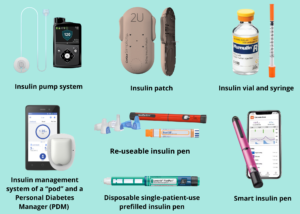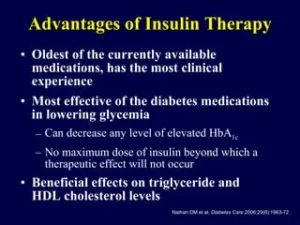Introduction

Although managing diabetes can seem intimidating, it can be made easier by knowing how insulin functions. Let’s examine diabetes and why insulin is so important for controlling it.
What is Diabetes?

Diabetes is a chronic condition where the body either cannot produce enough insulin or cannot effectively use the insulin it makes. This leads to high blood sugar levels, which can cause various health problems if not managed properly.
Importance of Insulin in Diabetes Management
Importance of Insulin in Diabetes ManagementInsulin is a hormone produced by the pancreas that helps regulate blood sugar levels. For people with diabetes, managing insulin levels is key to maintaining healthy blood sugar levels and preventing complications.
Types of Diabetes

Type 1 Diabetes
Type 1 diabetes is an autoimmune condition where the body attacks and destroys insulin-producing cells in the pancreas. People with Type 1 diabetes need to take insulin daily.
Type 2 Diabetes
Type 2 diabetes Type 2 diabetes occurs when the body becomes resistant to insulin or doesn’t produce enough insulin. It is often managed with lifestyle changes and medication, but some people may also need insulin therapy.
Gestational Diabetes
Gestational diabetes happens during pregnancy and for the most part, disappears after the child is conceived. In any case, it builds the gamble of creating Type 2 diabetes further down the road.
Insulin Therapy for Diabetes
What is Insulin Treatment?
Insulin treatment includes taking insulin to oversee glucose levels. It’s fundamental for individuals with Type 1 diabetes and here and there essential for those with Type 2 diabetes.
Types of Insulin
There are a few sorts of insulin, each working at various paces and going on for various lengths:

Rapid-acting Insulin
Rapid-acting insulin begins working somewhere around 15 minutes and goes on for around 2-4 hours. It’s ordinarily taken before feasts.
Short-acting Insulin
Short-acting insulin requires around 30 minutes to work and goes on for 3-6 hours. It’s likewise taken before dinners.
Intermediate-acting Insulin
Intermediate-acting insulin begins working in 2-4 hours and goes on for 12-18 hours. It’s not unexpected required two times per day.
Long-acting Insulin
Long-acting insulin requires a few hours to begin working and goes on for 24 hours or more. It’s generally required one time per day.
How to Administer Insulin

Injection
Insulin is most commonly administered via injection using a syringe, pen, or pump.
Insulin Pump
An insulin pump is a small device worn on the body that delivers continuous insulin through a catheter placed under the skin.
Benefits of Insulin Therapy

Blood Sugar Regulation
Insulin therapy lowers the risk of consequences like heart disease, renal damage, and visual issues by helping to maintain stable blood sugar levels.
Preventing Complications from Diabetes
Insulin therapy aids in the prevention of both immediate and long-term consequences related to diabetes by efficiently controlling blood sugar levels.
Conclusion
Although using insulin treatment to manage diabetes can seem overwhelming, it is completely feasible to lead a healthy, meaningful life with the correct knowledge and assistance. You may effectively control your diabetes by changing your lifestyle, monitoring blood sugar levels, and learning how insulin functions.
CLICK HERE FOR MORE INFORMATION
FAQs
- Which symptoms indicate that I need to take insulin?
Your doctor might suggest insulin therapy if your blood sugar levels are continually high even after making lifestyle modifications and taking medication.
- Can I take insulin to control my diabetes?
While some Type 2 diabetics may control their disease with medicine and lifestyle modifications, others may require insulin therapy.
- How should insulin be stored?
Insulin needs to be kept chilled until it’s opened. After opening, it can be stored for a predetermined amount of time—typically 28 days—at room temperature.
- If I forget to take my insulin, what should I do?
If you forget to take an insulin dose, make sure you follow your doctor’s instructions. This may involve changing your next dose or taking the missing dose as soon as you remember.
- Can insulin therapy be replaced by changes in lifestyle?
Although modifying one’s lifestyle is essential for treating diabetes, insulin therapy may still be necessary in certain cases, particularly for people with Type 1 or advanced Type 2 diabetes.